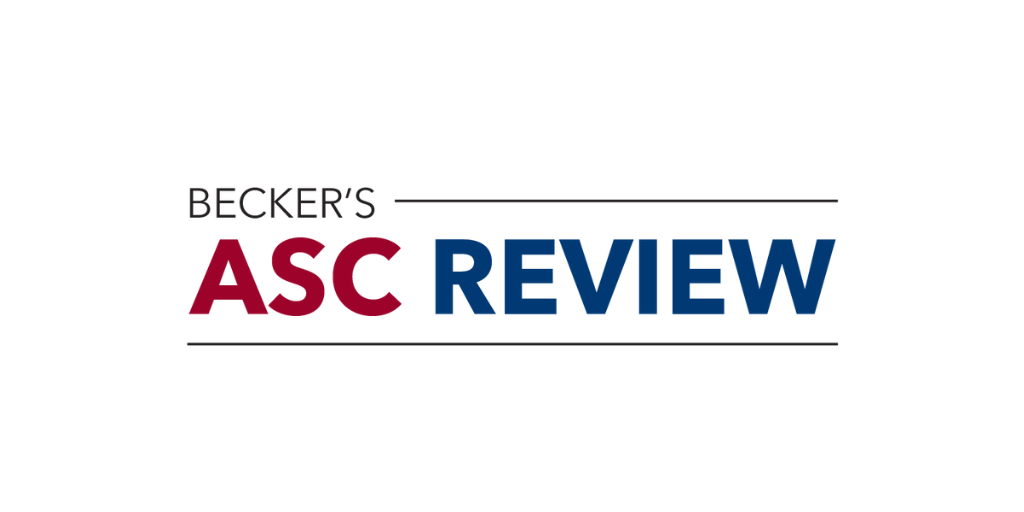By: Patsy Newitt, Becker’s ASC Review
The ASC industry has existed for decades, but today’s operating environment looks dramatically different than it did at its inception. For Franklin, Tenn.-based Regent Surgical Health, that shift requires a new playbook.
Founded in 2001, Regent Surgical Health partners with health systems and physician groups to develop, own and manage 26 ASCs across more than 13 states. The company has steadily expanded its footprint over the past two decades, adapting its model to meet the evolving needs of providers and patients.
Most recently, Regent entered a partnership with Patches Kids Care to build ASCs, marking its first move into pediatric care. In May, it also joined forces with Cleveland Clinic to create an ASC network.
“One of the greatest challenges for ASC management companies is that the operating environment has changed,” Regent CEO Travis Messina told Becker’s. “Specifically, physician employment patterns have changed. They were largely independent, now they’re largely employed. Payer mix has shifted. With an aging population, there are more Medicare beneficiaries, and within that, more Medicare Advantage beneficiaries, which brings different operating constraints.”
Historically, ASC management growth was fueled by independent physician groups seeking joint ventures. That pipeline has dwindled, Mr. Messina said, as health systems employ the majority of physicians and Medicare Advantage enrollment has surged.
To adapt, Regent has leaned heavily into IT and analytics.
“In this industry, many centers still rely on paper-based medical records, which is mind-blowing,” Mr. Messina said. “Though costly, electronic medical records create a better operating environment and enable us to leverage analytics so we can run our centers not only more efficiently, but better.”
While 66% of ASCs now use an EHR system — up from 55% in 2021, according to the Ambulatory Surgery Center Association’s July 2025 60-Second Survey — Regent has gone further by building a team with “tremendous experience from other healthcare industries who have built advanced analytics platforms,” Mr. Messina said.
By aggregating and analyzing data across its ASC network, the company aims to boost operational efficiency, patient satisfaction and physician engagement.
“Being able to tap into the data we capture — from electronic medical records and other systems we use at Regent — helps us provide greater value to our partners,” Mr. Messina said.
This investment is critical for scaling without proportional increases in staff.
“When I think about sustainable growth, it’s about adding new centers without just adding a lot of new staff,” he explained. “That’s why IT and analytics are critical.”
Another cornerstone of Regent’s strategy is pursuing partnerships and payer relationships that many ASC operators avoid.
“It’s a perceived challenge that if a physician doesn’t have ownership in an ASC, you can’t get proper engagement,” Mr. Messina said. But the ability to invest and generate a return isn’t the only motivator. Decisions to use an ASC, especially a Regent ASC, don’t have to rely solely on generating investment return.”
Instead, physicians are drawn to Regent centers because they make their “lives easier with high-quality outcomes, efficient operations, quicker room turnover, and convenient scheduling. Because of our singular focus, we’re much more efficient.”
Patients also benefit, and physicians can see more of them.
“Since ASCs reduce administrative burden compared to hospitals, physicians spend more time with patients,” he said. “Those three factors overcome the perceived challenge of lacking ownership.”
The results support this approach.
“We’re big on engagement surveys—with employees and physician partners. We have best-in-class participation: over 90% of employees and around 70% of physicians complete them,” he said. “Our physician Net Promoter Score is in the 90th percentile.”
Regent is also pushing into partnerships with academic medical centers, which have historically resisted outpatient surgery.
“We have a saying at Regent: We run toward areas others have avoided,” Mr. Messina said.
By aligning with academic centers and leveraging data to prove safety and effectiveness, Regent is positioning itself ahead of the regulatory curve and preparing for an influx of new outpatient procedures.
